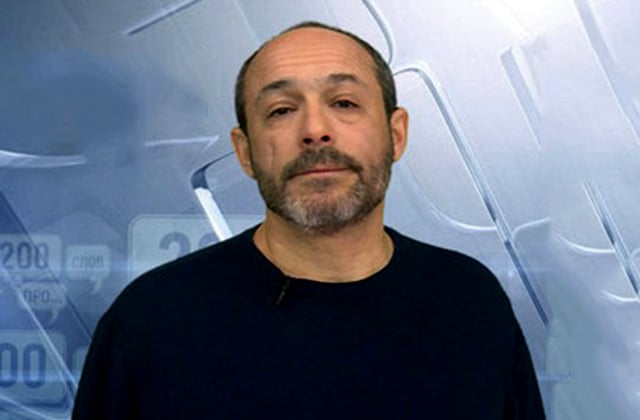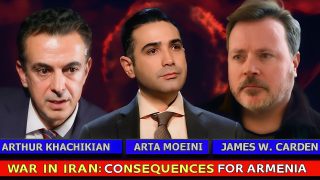Kazan document was refused long ago, however, Madrid principles are in force

OSCE MG Co-Chair Igor Popov (Russia) these days uncovered details on Nalbandian-Lavrov-Mammadyarov meeting held on April 28 in Moscow. He stated an agreement was reached on increasing the number of international observers by 7, however, there are disagreements on certain details, including location of observers, order of financing and other technical issues.
“168 Hours” interviewed Vadim Dubnov, Russian political scientist, political analyst at “Echo of the Caucasus” (Prague), on recent developments around Karabakh conflict.
Mr. Dubnov, Armenia’s president Serzh Sargsyan in his speech at the NA sated that in the agenda of Karabakh conflict settlement lays Kazan document. In your opinion, what message is sent by that statement and is it possible that activities directed at Karabakh conflict settlement more accelerate in future?
I consider Serzh Sargsyan is right, as after Kazan meeting any serious document didn’t appear, and as it’s known Kazan document is the amended option of Madrid principles. However, basically, Kazan document was refused long ago and Madrid principles continue their life, as they are exclusively in framework dimension, they are formulas, based on which rather different documents may appear, including Kazan document.
Any acceleration of the process can’t be recorded, as currently neither side is busy with the conflict settlement, both Baku and Yerevan solve strategic issues. For that very reason mediators will have to think over not global settlement of the conflict, but prevent another outbreak, like it happened in April, or small ones, occurring every month.
Why do you consider that it’s impossible to change anything? Serzh Sargsyan stated that change of status quo is acceptable, however, only in case of comprehensive settlement of the issue. Also Head of EU Delegation to Armenia Piotr Switalski stated that status quo isn’t maintainable. Don’t you agree that the Armenian side is ready to change anything?
No, I think the Armenian side isn’t ready to change anything, as what happens now satisfies it, i.e. status quo is enough. Only Baku attempts to change anything by hinting military pressure, this is the formula.
How would you comment on the formula put forward by Azerbaijani FM Mammadyarov after the trilateral meeting in Moscow—“territories for peace”?
Basically he repeated the essence of Madrid principles, around which talks were developing with some changes yet from the 90s. I think there is nothing new in this statement, simply what Baku has always stated is being proposed—Armenia should withdraw from the regions, Armenia should go to demilitarization, in response, Azerbaijan will launch peace talks, and etc. Azerbaijan’s this behavior repeats every year, phase to phase, through this or that text.
Every day shootings are recorded on the line of contact, regularly casualties are recorded, even the statement issued by OSCE MG Co-Chairs didn’t have any restraining effect. What is necessary not to record casualties on the border and for ceasefire maintenance?
I consider it’s difficult to do anything here. I wouldn’t overestimate the statement by OSCE MG on Azerbaijani activities, as months ago a statement was addressed to Armenia, when they called on the sides to solve the issue of returning bodies of Azerbaijanis.
I think that targeting occurs by shift and it isn’t so intensive, I wouldn’t have great expectations from it. I think 2-3 weeks later it’ll be forgotten both in Baku and Yerevan. I think technical negotiations should be launched regarding ceasefire maintenance.
There seems to be not a political issue, however the point is that it’s becoming a political issue for Baku, which started implementing rather active steps and instigate the Armenian side. Baku isn’t interested in weakening of the conflict. And I’m not sure that Yerevan is really interested in it.
Russia intended to supply armaments to CSTO countries, including Armenia. Can it have an effect on the situation or power balance in the region?
I don’t think that it’ll bring to any serious change regarding power balance, as supply of any type of armaments is agreed and coordinated with Azerbaijani supplies. Moscow will continue arming both sides, I don’t observe politics here, but I think it’s simply business, but it’s criminal in itself, as on the conflict zone, where military operations are ongoing, where Moscow is a mediator, it’s rather ambiguous and dramatic. But it’ll continue, as all sides are interested in it this way or another.
Turkey and Russia settle relations. To your mind, what implication will it have in our region?
Firstly, I’m not sure that Turkey and Russia may establish warm relations. The resource of rapprochement of these countries is close to 0, but it rather conforms to what always existed. I don’t consider Turkey a zealous actor in Karabakh conflict settlement and generally in Armenia-Azerbaijan confrontation. Turkey involved in it in 2008, when it failed football diplomacy, and it happened by Azerbaijan’s demand and Russia’s participation. But this was the peak of Turkey’s activeness.
Turkey attempts to keep distance. However, we don’t know how will things develop and how the situation will change in modernizing world. Todays’ Turkey is a bit different, it’s difficult to anticipate how its foreign policy, former system will change. It depends not so much on the situation in the region, I mean Armenia-Azerbaijan conflict, but the wider region—Syria and etc., also from relations of Ankara and Europe.
By Gayane Khachatryan

























